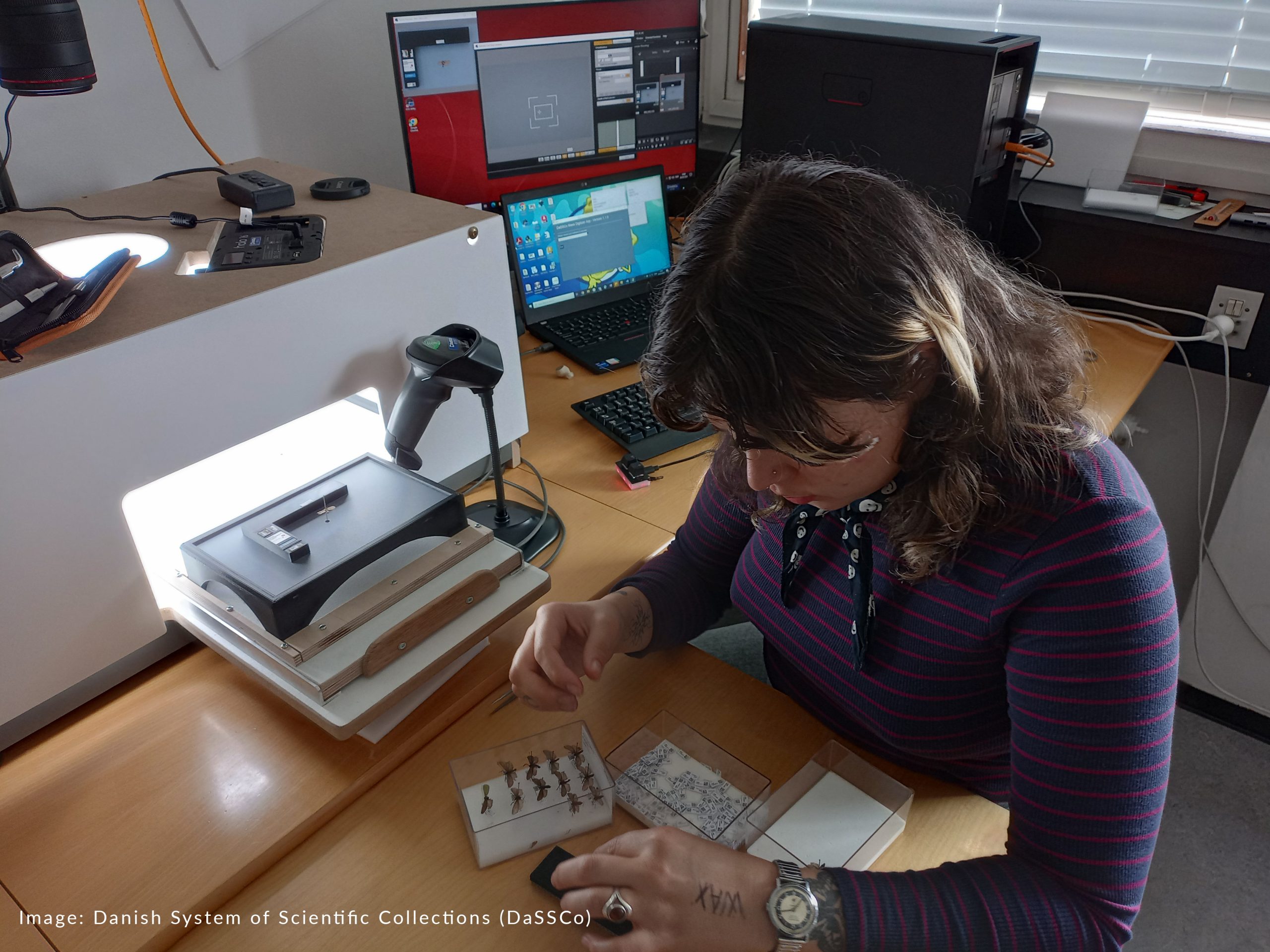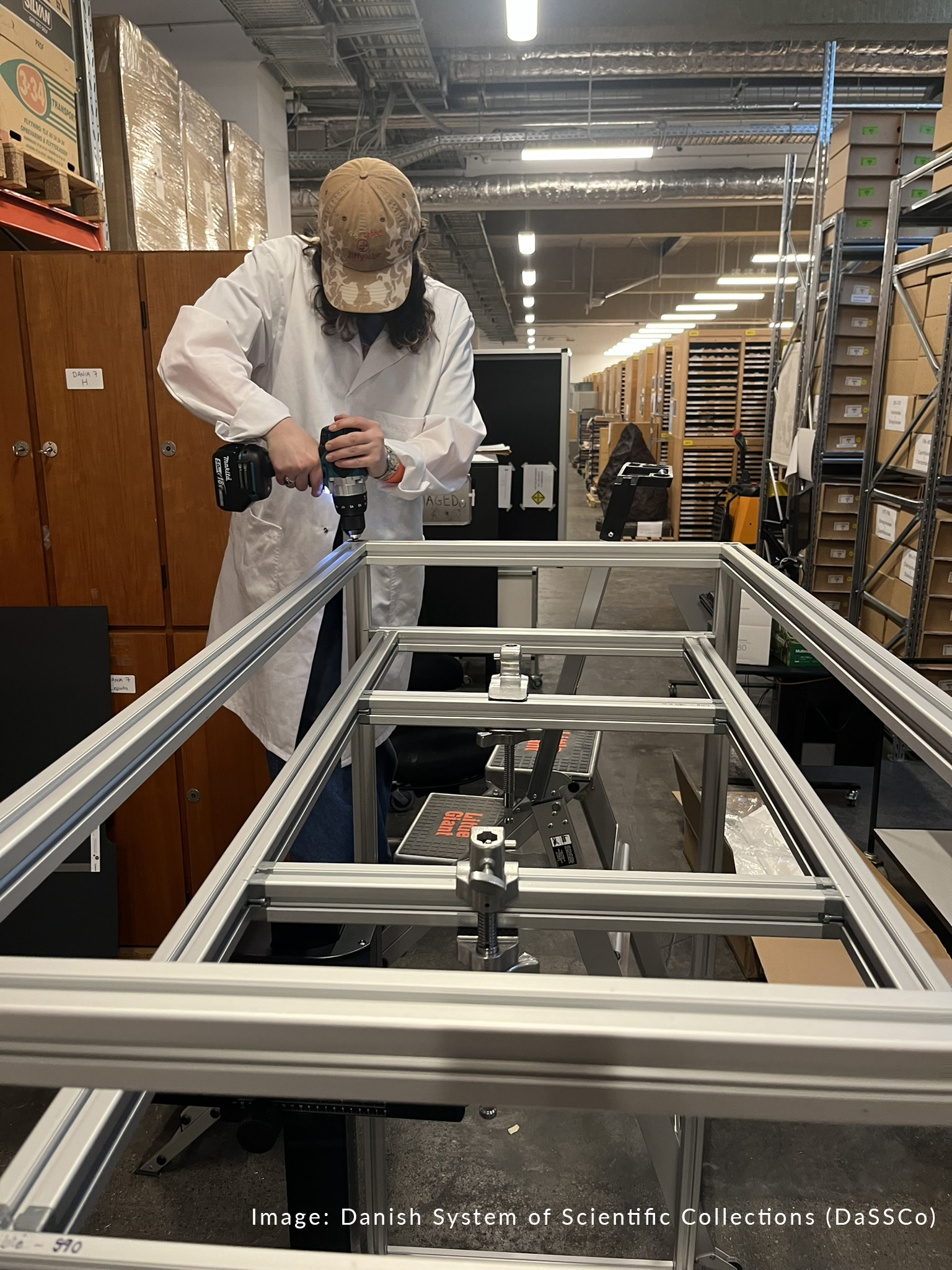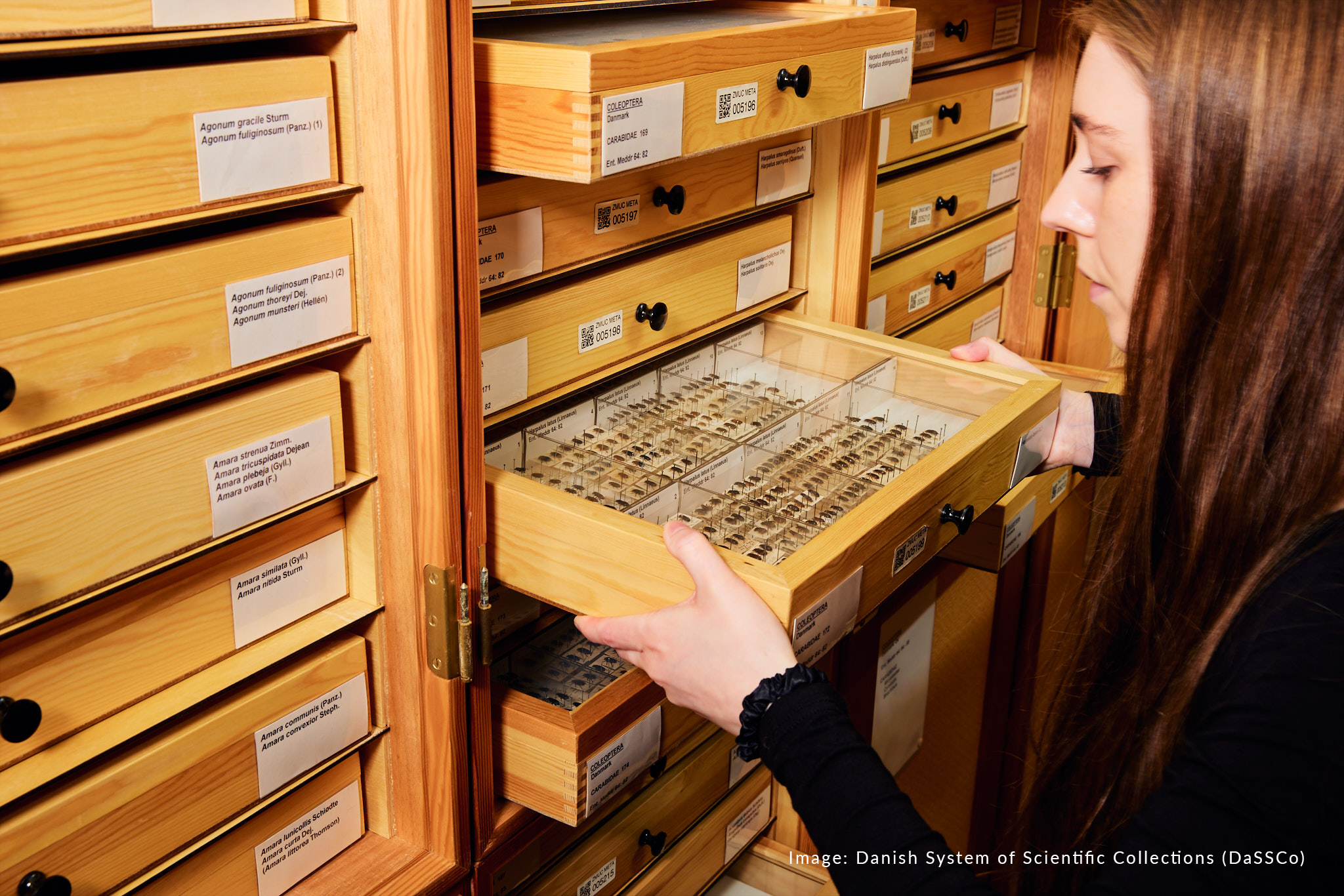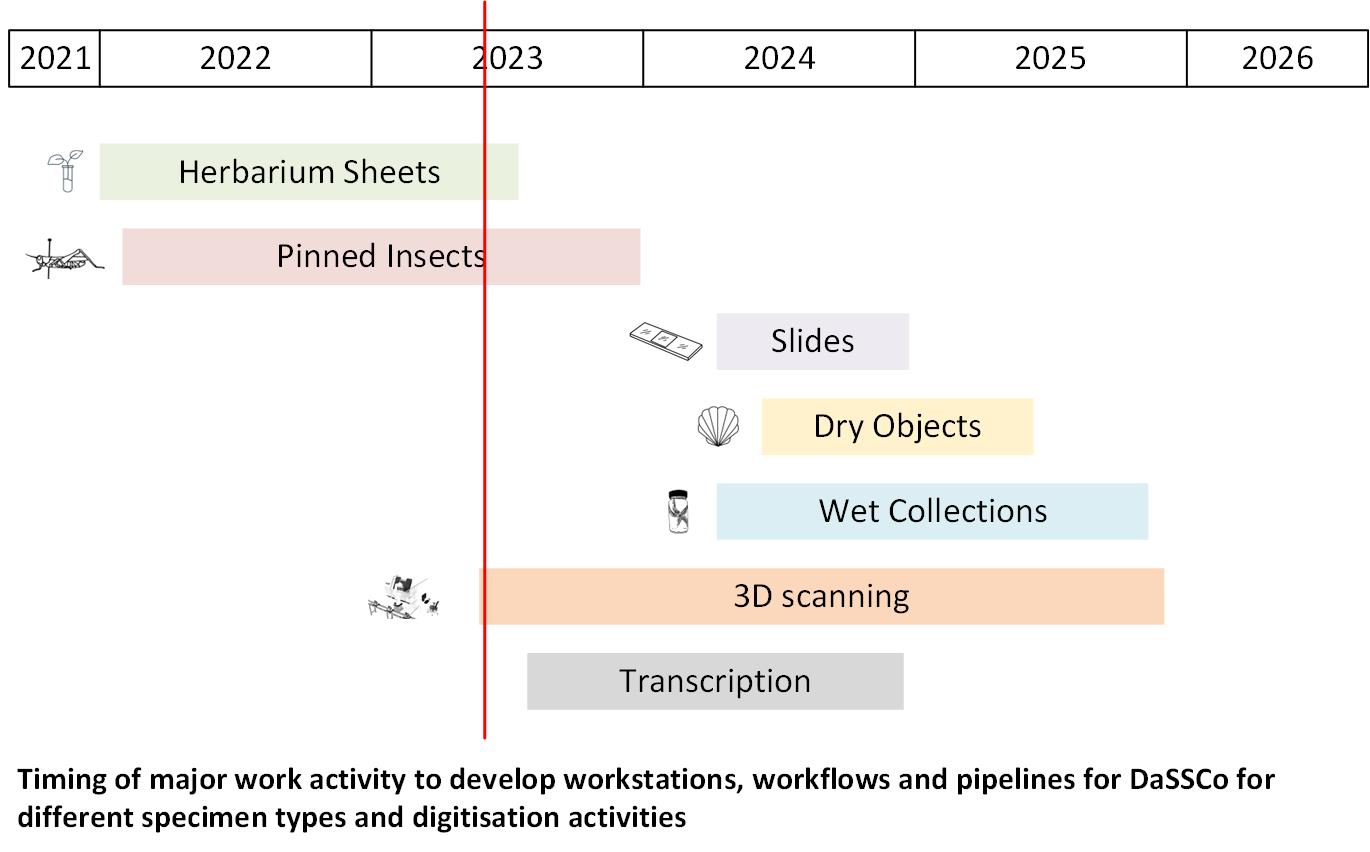
16 April 2024
Mass-scale digitisation underpins DiSSCo’s vision of an open system of collections that, relying on the concept of Digital Specimen, openly provide their knowledge to the scientific community following the FAIR principles. The necessary investments -both in terms of monetary and human resources- to initiate mass digitisation is, however, frequently disregarded.
In this post, we take a look at the Danish System of Scientific Collections (DaSSCo), DiSSCo-linked programme to digitise Danish natural history collections. A bit over two and a half years since its launching, DaSSCo provides an excellent example of the kinds of efforts required to plan and implement a nation-wide effort to digitise natural history collections.
By DaSSCo and DiSSCo CSO.
Overview
The Danish System of Scientific Collections (DaSSCo) is a national digitisation program aimed at making Denmark’s natural history collections accessible to everyone. The program started in September 2021 and is expected to last at least a couple of decades. The Danish Ministry of Education and Research has invested 30 million kroner (around 4 million euros) in seed funding to establish the infrastructure for the program. By September 2026, DaSSCo will have an operational infrastructure capable of digitising the 20 million plus natural history specimens in Denmark.

Image above: Just over halfway through its establishment phase, DaSSCo is focused on refining and deploying its IT architecture.
DaSSCo’s infrastructure
The infrastructure will incorporate digital storage, DaSSCo’s specimen collections management system (Specify), automated data pipelines, workstations, workflows as well as tools and expertise to manage ongoing digitisation efforts.
Digitisation tasks will be co-ordinated nationally via a consortium with all specimen types suitable for mass digitisation being in scope (such as wet collections, slides and pinned insects). The infrastructure will be distributed and modular, allowing the iterative development and addition of new workstations, workflows and pipelines as needed. Digitisation efforts will focus on capturing and parsing specimen information from labels so it is fully accessible and searchable by researchers around the world via external publishers such as GBIF.
Wherever possible and when there is a research need, DaSSCo will also capture and publish high quality images of specimens. The newly created Digital Section at Natural History Museum Demark (part of the University of Copenhagen, who are administrators of the grant) will lead on developing new tools and techniques in digitisation and in the use of digital data in research. Products developed by DaSSCo, such as new software, workstation designs and workflows, will be shared online with the international digitisation community.

Image above: Pinned insects are among the specimens suitable for mass digitisation.
State of play
DaSSCo is just over halfway through its establishment phase, focused on refining and deploying its IT architecture. There are already two types of workstations up and running: one for imaging herbarium sheets and one for pinned insects. Digitisation started at the end of 2023 using these workstations and there have been already been lessons learned from this experience that are informing refinement of various processes. DaSSCo is also working on developing the next workstations -including a modified pinned insect workstation and a CT pipeline- and on solutions for capturing information direct from specimen labels.

Image source: dassco.dk
For more information, please visit the Danish System of Scientific Collections website here.
Do you want to know more about the technical side of DiSSCo? DiSSCo puts different technical knowledge platforms at the scientific community’s disposal:
DiSSCoTech: Get the latest technical posts about the design of DiSSCo’s Infrastructure
DiSSCo Labs: A preview of experimental services and demonstrators by the DiSSCo community
DiSSCo GitHub: Code hosting for DiSSCo software, version control and collaboration